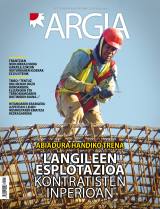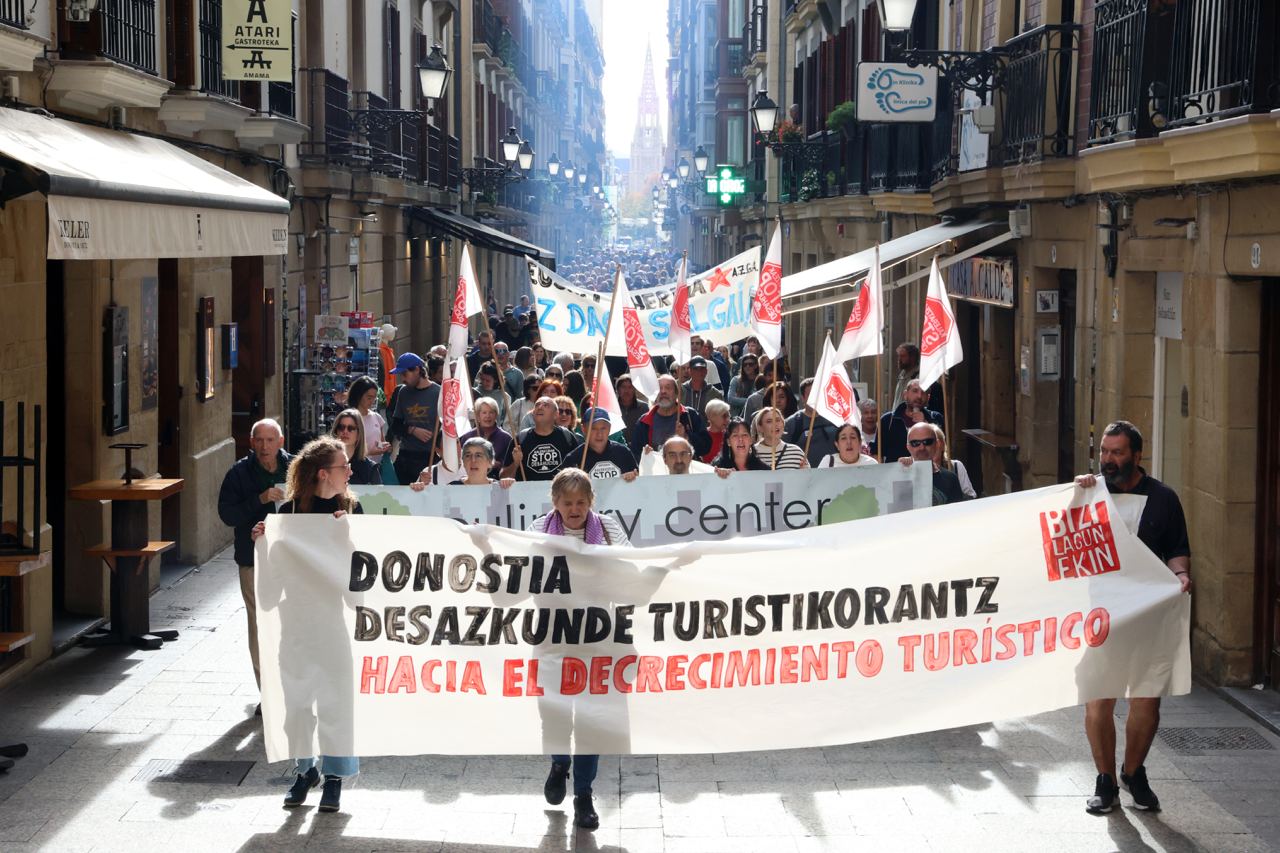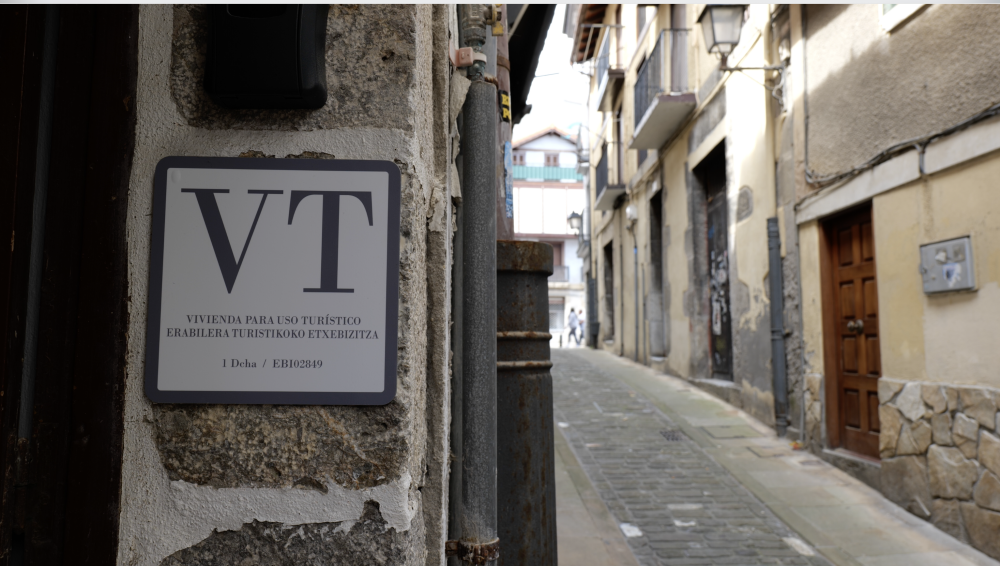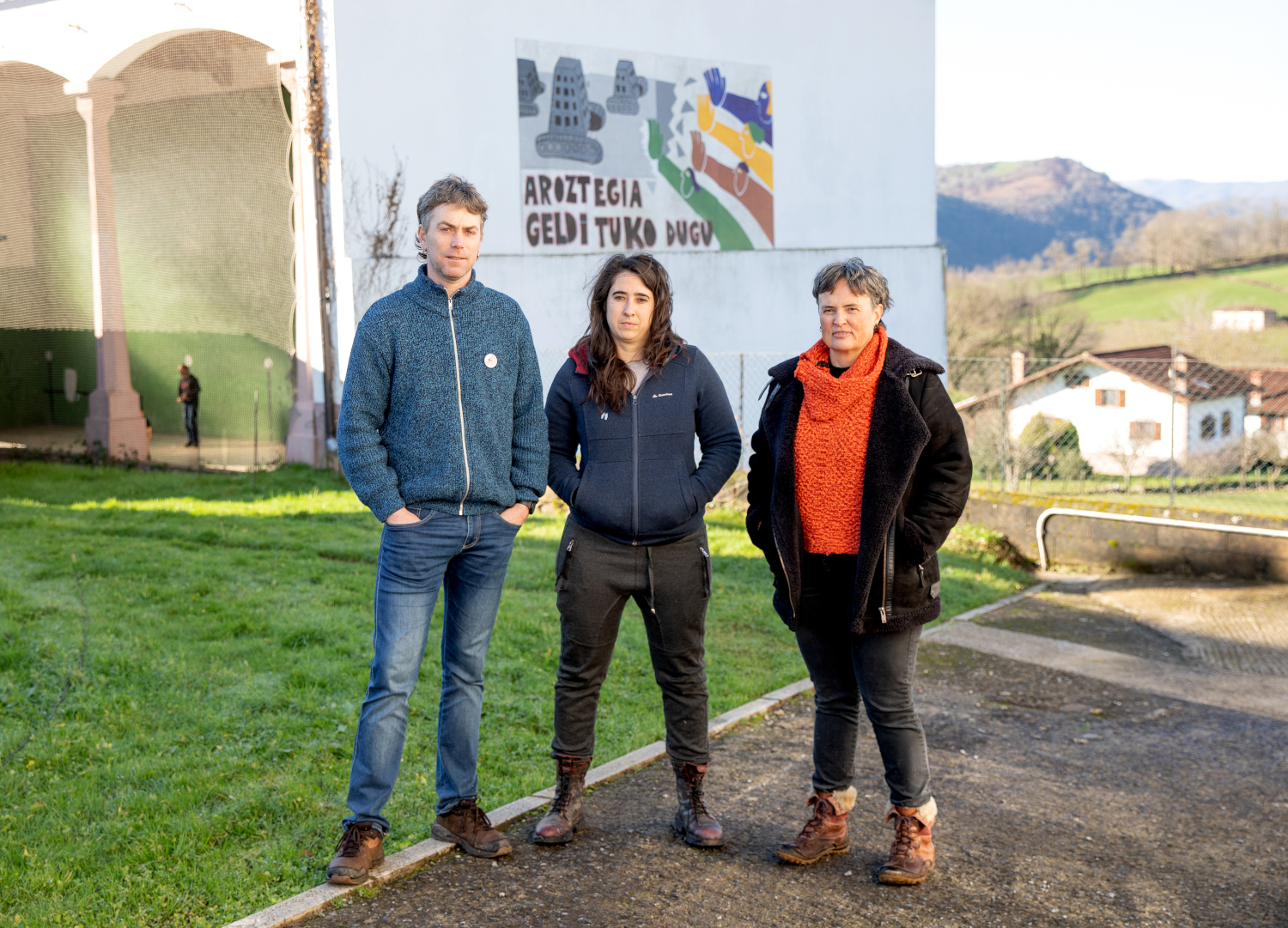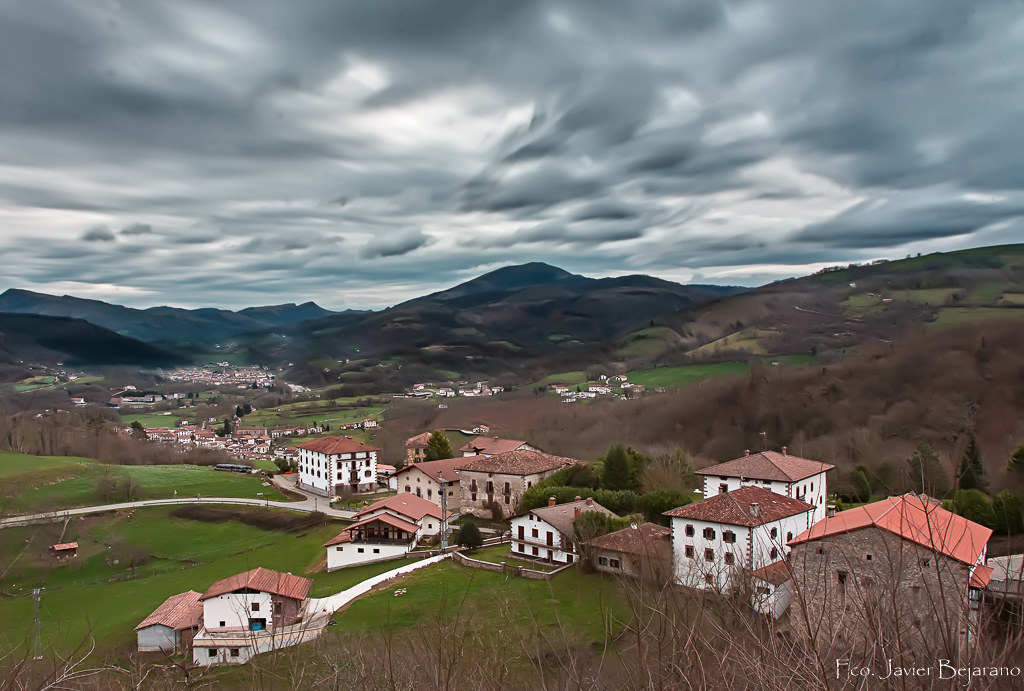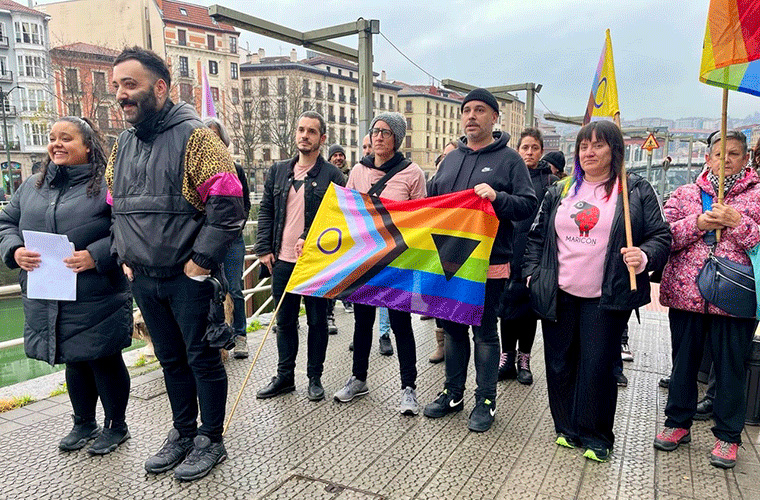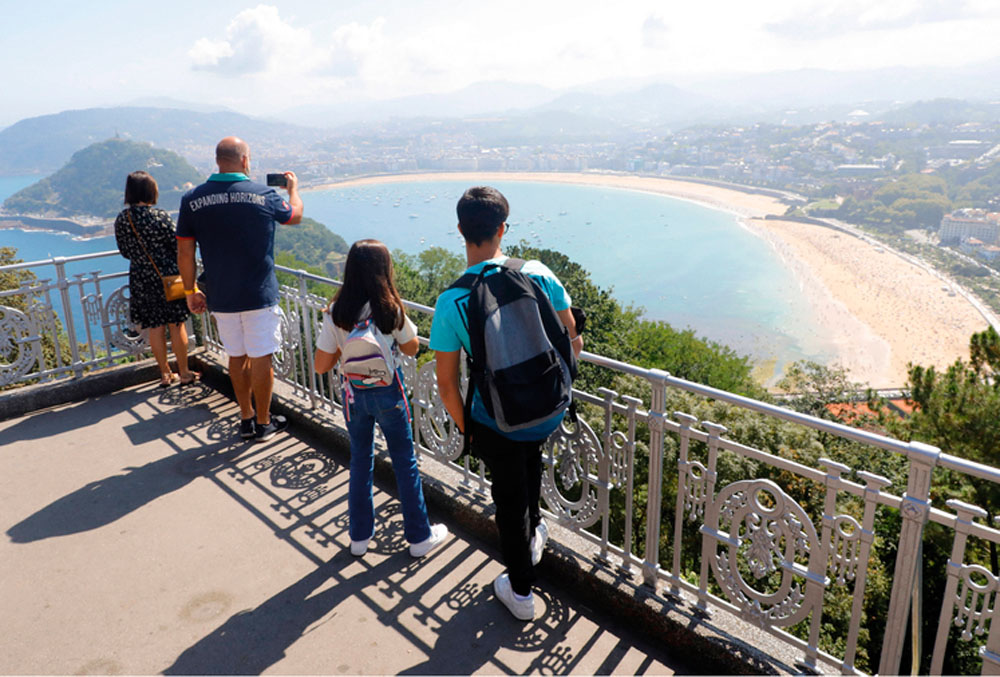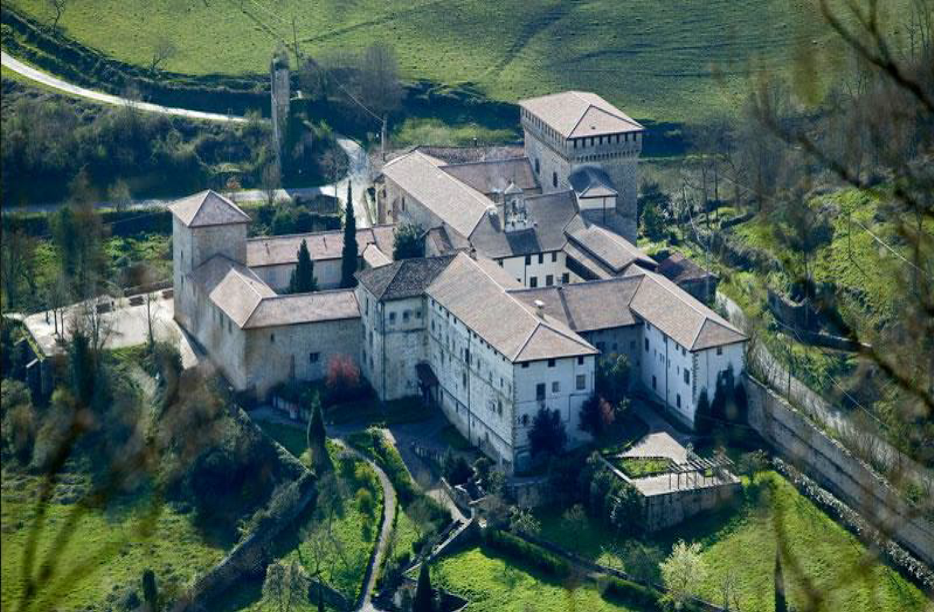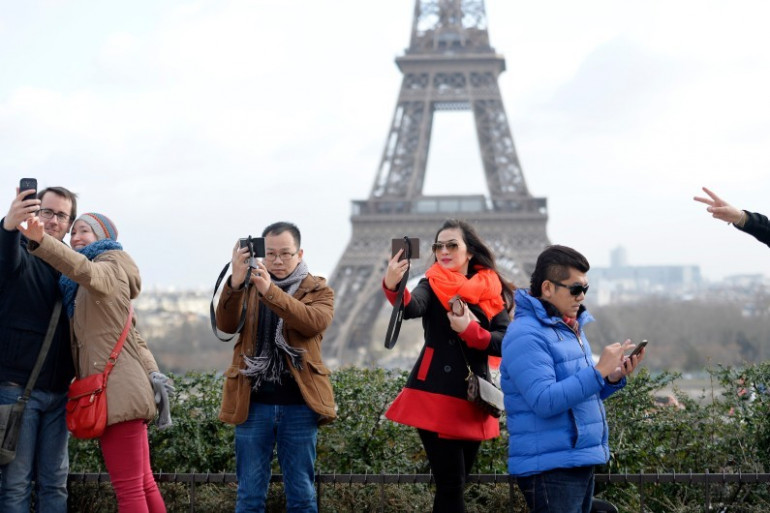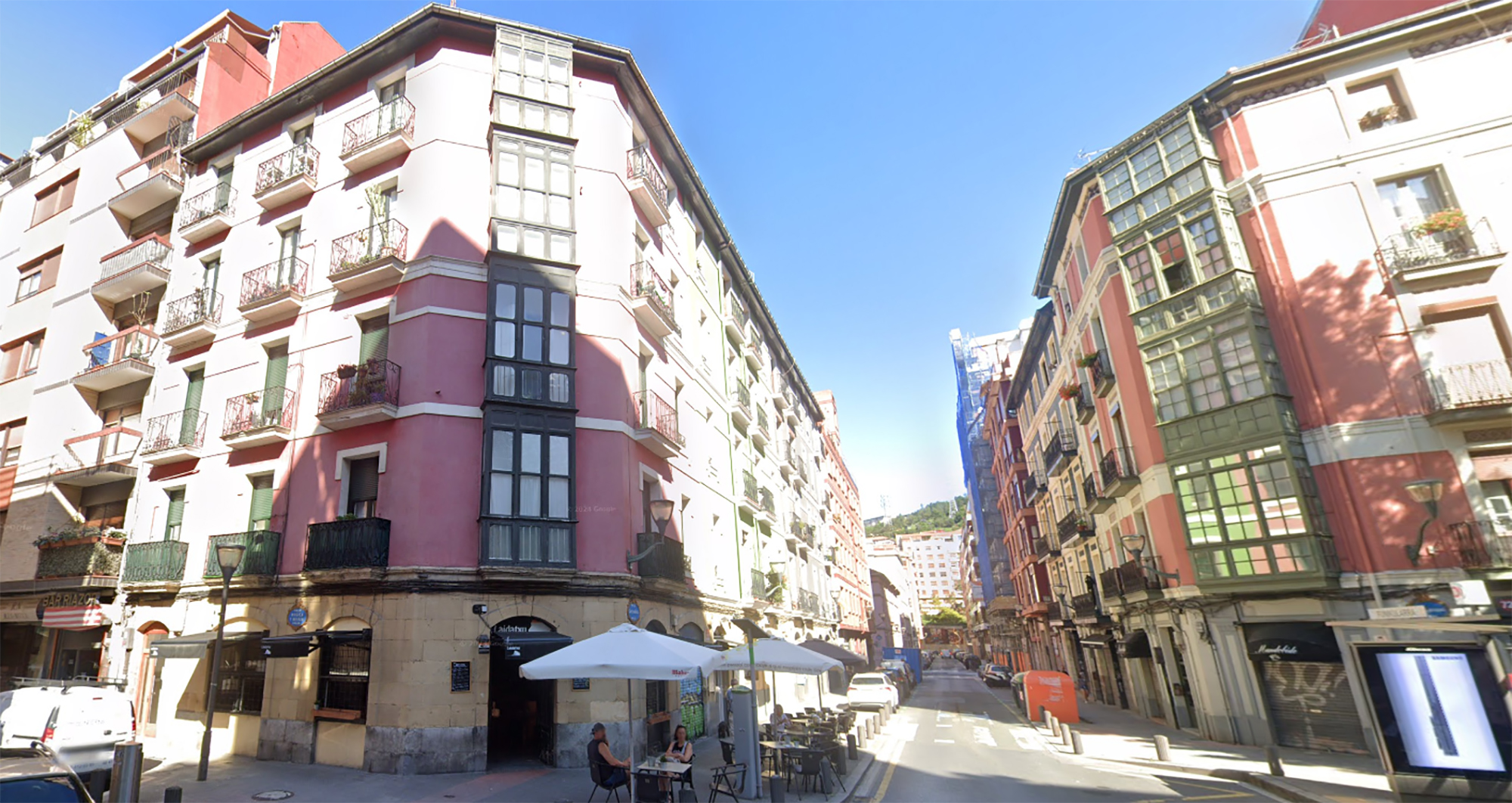"The Camino de Santiago have arrived, like people, the speculators"
- The Falkland Fermín Paularena is well known for his inventions and for the businesses he sets in motion. Seven years ago he opened a small oasis in the Puerto de Erro for pilgrims and cyclists of the Camino de Santiago, which from now on will take the form of a dollar.
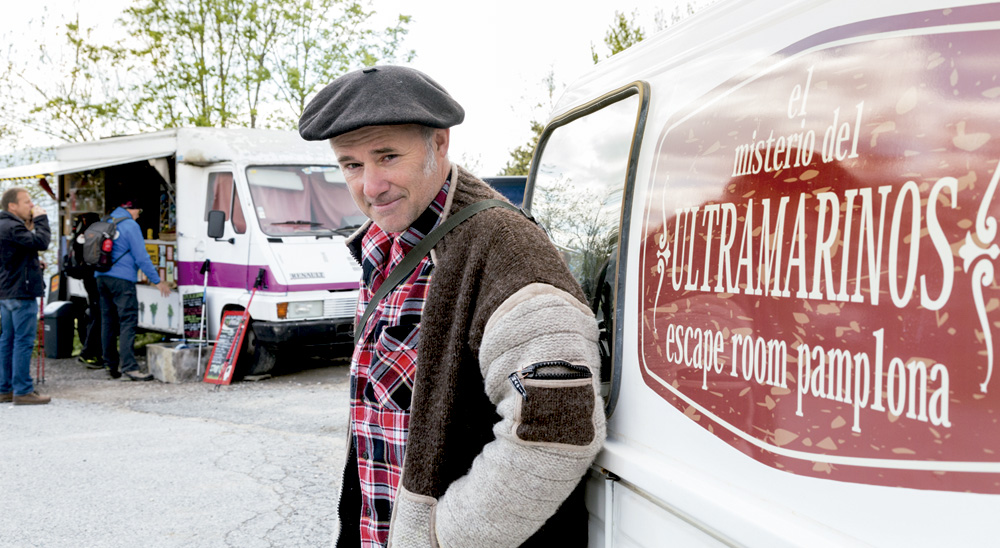
Erro mendatean, Donejakue bidean, taberna mugikor arrakastatsua zabaldu zuen Paularenak orain dela zazpi urte erromesei eta txirrindulariei zerbitzua emateko. Bideko zigilua, kafea, jateko zerbait… eskaintzen dizkie. Hori bezala, beste proiektu bitxi asko abiarazi ditu iruindarrak bere bizitzan: elur gainean ibiltzeko bizikleta, sanferminetako bideo-joko hezitzailea, goitibeheren nazioarteko topaketak, egur sintetikoa material birziklatuekin, Madelman panpinen bertsio anitzak… eta orain ihes gelak edo escape room motako jokoak jite hezigarriarekin.
How is it possible for pilgrims to come in tropel for a single working day?
I joke to say that I'm convinced there's a traffic light in the middle of the mountain and that when you put the green people are climbing. The truth is that road is a global phenomenon that attracts more and more people and in which the influence of many factors is appreciated. In 2016, a total of 278,041 pilgrims completed the journey, of which 55% were from outside the Spanish state, mostly from Italy, Germany, the United States and Portugal. The offers and books and films made by tour operators have an extraordinary impact, so no forecasts can be made. In 2011, for example, Korean Kim Hyo Sun wrote a book and performed a reality show on the way, and since then the number of Korean visitors has increased enormously. This year, 26 per cent of foreigners who have been on their way in January and February have been Koreans.
On the other hand, Paulo Coelho mentioned the road in his book published in 1987, which attracts a large number of Brazilians. Also, in Germany, just over a year ago, humorist Hape Kerkeling made a film based on the successful book she herself wrote eleven years ago on the same subject.
How did you come up with the idea of putting a bar here?
I opened it seven years ago. I've been cycling a lot and I knew that in these places there's no source. The pilgrims also had no service in these areas, less than 10 kilometres away. Seven kilometers from Lintzoain and in the absence of three kilometers to reach Zubiri, the Alto de Erro is a good place for it. I have the permits of the City Council of Erro and the Council of Erro-Zilbeti, I pay them a fee and we got very good.
Has the environment changed since it started?
Yes. More and more people are coming, but speculators have also come with them. This is a tourist phenomenon, but it should also be borne in mind that the profile of these visitors is different. Many people come to meet themselves, for religious reasons or because they want a change in their lives. Others see the business opportunity as if it were the Mediterranean coast. On many occasions, they lose respect for pilgrims. In the last two or three years it is observed how the pilgrims go to the center of the road, grab their arms and offer to sleep in their homes, or change direction to guide the pilgrims to where they want. In Galicia they do so often. I think we need to change our attitude here, a different mood, like the guardians of a mountain refuge. We have to help people, but not with the sole aim of making the most of the money possible. They are tourists, but also nature lovers, it is another philosophy and they have other needs.
The regulation of the Camino de Santiago clearly states that pilgrims must be protected and left in peace, but aggressive practices, robberies and sexist aggressions are also frequently seen. There is a certain institutional indifference and helplessness.
It is also a meeting point for cyclists.
Yes. Here we have tools for bicycle repair and we offer a bicycle bonus. They take it at the beginning of the season, and every time they come, we take away from the bonus what they take, so they don't have to bring money every time. In addition, at the end of September we held a competition and a small party with them: race, txistorrada and a little music.
And what is the box full of underwear that you have next to the bar?
I put it there to leave overweight things that the pilgrims carried in their backpack, that is, books, spare clothes, etc., but a girl posted on Facebook that after she left the bra in the box, they found the boyfriend and they married in Santiago. Since then people have been leaving their underwear to look for luck.
Is the bar open every day?
From April to October yes. In addition, we are called to perform catering services periodically at different meetings or parties. It's been very hard, because so far I've been alone. I barely have time to see my 5-year-old son, but now I have a partner and because of that I have time for myself and to start other projects.
And will we soon see the renovated bar?
Then. It's going to be a bunch of donkey bar, and we're almost ready. A microwave is available for hot food, refrigerator and freezer. In addition, we have achieved a new and special “zero emissions and zero waste” stamp. It will have six solar panels to get electricity, and as now, we will continue to recycle all the waste. For example, we make synthetic wood with debris from coffee. Mixed with five other ingredients you get biodegradable pasta, very compact, but very light at the same time, and you can use it to make furniture or whatever you want. I, for example, use it to make bunkers for the models of my World War II. On the other hand, we make eco-bricks with plastic. To do this, the other well pressed plastic containers are put in a bottle until they are perfectly compressed. Full-day plastics enter an eco-brick. All this was taught to me by a pilgrim from Easter Island. They have a tremendous problem with the garbage there. With plastic and polyps, I was able to make synthetic plastic cold and I made several seats as a test.

You have recently prepared in Pamplona a space for the adventure game like the one currently in full streak. What's the room escape you've prepared?
It's called "The Mystery of the Grocery Store," and with it I've changed the concept of escape or escape room games. In my room, you don't have to find the key to get it out of there, but to think and do a research job. There is no time limit. There's not that much pressure. You're playing, but at the same time you learn. Mystery is part of a real story, in this case the disappearance of the owner of a grocery store. The things in the store are real, from a store 60 years ago, and all those things take you to that time. It's not just a decor, it's kind of like the discovery rooms that are given in museums. Customers say that we have to think much more about our house and that it is highly recommended to come with children and young people. It can also be interesting in terms of tourism, to make their stories known, but through games.
I've invented a thousand things in my life, and this is the joy that has given me the most. I have often had the feeling of guessing things too early, as if society were not yet ready for it. This time, however, I seem to have been right at the time.
And soon another one?
It will be called “warehouse 44” and will be the hiding place of the French resistance. During the Second World War, an American aircraft fell in the small town of Mezkiritz, specifically on 25 June 1944. The Americans who parachuted were backed by the citizens, and that's how the game kicks off. We are planning to open it at the end of June and I am now collecting the metal fragments of that aircraft and the things of the time.
At first, players will get into a simulator for two minutes to learn about what it felt inside the plane, and then they will start playing as if the Nazis had followed them. They will have to look for answers all the time, but without using the new technologies. That is the difficulty of the game. It's like going back to the caves.
Do you have this anti-war message?
That feeling will be brought out by yourself at the end of the game.
What else do you have in your hands?
This year marks the tenth anniversary of Festiman. I mean, I made the sanferminera version taking as a model the well-known Madelman doll. I'm very fond, I have a great collection and I like to make dolls for other collectors. I've made a bunch of carnival characters, among others, Valcarlos bolantes. Now I'm working on other characterizations: pastor, txistulari and peñas member. It's a craft job. Now I've bought an industrial sewing machine, and I'd like to do more, perhaps to explain some passages of history in the education system, for example, the Basque pirates, but to do it all, it would take a 36-hour day.

Where does the constant desire to launch new projects come from?
It is my disgrace. When I was a kid in the neighborhood, they called me inventions. In the garden of La Rochapea's grandmother, I had my place to do my research. Since I was little I've been very moved and that's why I've always felt full of complexes. People respected me, but they didn't understand me. I do a lot of things, but at my pace, that is, very quickly, and without realizing it, I press people a lot to do things at my pace. Unfortunately, I realised that very late. Working with others, I've realized that the problem is me.
Now there's a lot of talk about multipotentialite people. A friend sent me an article on the subject, and I felt tremendously relieved, because that's what happens to me.
I've always felt that I had failed the people I wanted, leaving everything unfinished. Now, fortunately, I know that the goal of who we are multipotentialites is not to end or do things, but to learn new things. Once we have learned one thing, we lose interest in it. That is why, for example, I feel the need to change in a job after three years. The bar of Erro is an exception, because people are always different and leave you time to think about a lot of things. Ours is an insatiable thirst for learning. Now that I know it's a pathology, I'm happy and very proud to see that my son is also multipotentialite.
Are you therefore excellent at launching projects?
Large companies are looking for multipotentialites because we have a comprehensive vision of projects. It was my golden age when I was young I was on free radio Soinu or in the society of the San Juan neighborhood. We were a lot of young people, and we really wanted to do things. At Zarata, for example, we built the first slide with two old beta video readers, to stream music for eight hours continuously. We also made the mobile unit and another trick to pass the calls to the table. Next to the radio, we started the dance group, the rural sport group, the street animation group Ostruka and the carnivals of the neighborhood.
In our youth, there was a very different environment. Despite the difficult times and the fact that we had nothing, we had more freedom than the young people of today. We inherited the assembly culture of the 1970s. On the other hand, today's young people are more individualistic in general. It makes me sad. And it's sad to see how you've driven pretty initiatives that don't have continuity. He had been organizing international Goitibetan races in Euskal Herria for years, and the matter ended after I had left him.
What are the biggest obstacles you encounter for new projects?
In administration everything is very slow. In the United States you can start a business and a month later a supervisor will come to you to tell you what you have to adapt, but you're already working from the start. Not here. Here you can't start until you're granted permission and you may have to wait a year. Organizations are the worst nightmares for entrepreneurs.
For example, the new truck that I've built now. The pilgrims tell me that if I did so in Berlin I would win a prize, but here they only put you in difficulties. I've furnished the box of an isothermal truck. With the polyesters I have covered the exterior to shape a dolmen. I've worked all year and they don't approve of me. Instead, if I release the cabin and put it in a trailer as a cargo, instead of presenting myself as a truck, I wouldn't look like a nonsense. Now I have to disassemble everything, sell the truck and put the dolmen on a trailer. The tax on the revolutions of the sun is another clear example of obstacles. Why do we have to pay for solar?
Duela urtebete eskas Espainiako aireportuen sarea kudeatzen duen AENA enpresa publikoak iragarri zuen Loiuko aireportuko terminala handitu nahi duela. 2024an 7 milioi bidaiariren langatik gertu gelditu zen eta, handitzeak aurrera eginez gero, 2030. urtetik aurrera 13-14 milioi... [+]
Today’s Venice is built on an archipelago of 118 islands. These islands are connected by 455 bridges. The city is based on mud rather than Lura. Millions of trees in the area were cut down from the 9th century onwards to build piles and cement the city. Years have passed and... [+]
2020. urteko udaberrian lorategigintzak eta ortugintzak hartutako balioa gogoan, aisialdi aktibitate eta ingurune naturalarekin lotura gisa. Terraza eta etxeko loreontzietan hasitako ekintzak hiriko ortuen nekazaritzan jarraitu du, behin itxialdia bareturik. Historian zehar... [+]
Tasa edo zerga turistikoaren eztabaida urtetan luzatzen ari da, erakunde publikoetan ordezkaritza duten indar politikoen artean zabala den arren ezarri beharraren gaineko adostasuna. Eztabaidetako bat da zerga hori zein erakundek kobratuko duen: zenbait udalek (tartean... [+]
Ilbeltzeko igande goiz batez jo dugu Baztanera. Eguzkiak oraindik ez du Lekarozko plaza argitu; bertan elkartu gara Garbiñe Elizegi Narbarte, Itziar Torres Letona eta Ernesto Prat Urzainkirekin. Itzaletan hotz egiten du eta umorez goxatu dugu lehen agurra, hogei urtean... [+]
EHGAMek Axel hotelaren irregulartasunei jarritako helegitearen inguruko isiltasun administratiboaren ondoren, hotelaren itxiera eskatzen du eta hainbat eragileekin batera prentsaurrekoa eman dute.









